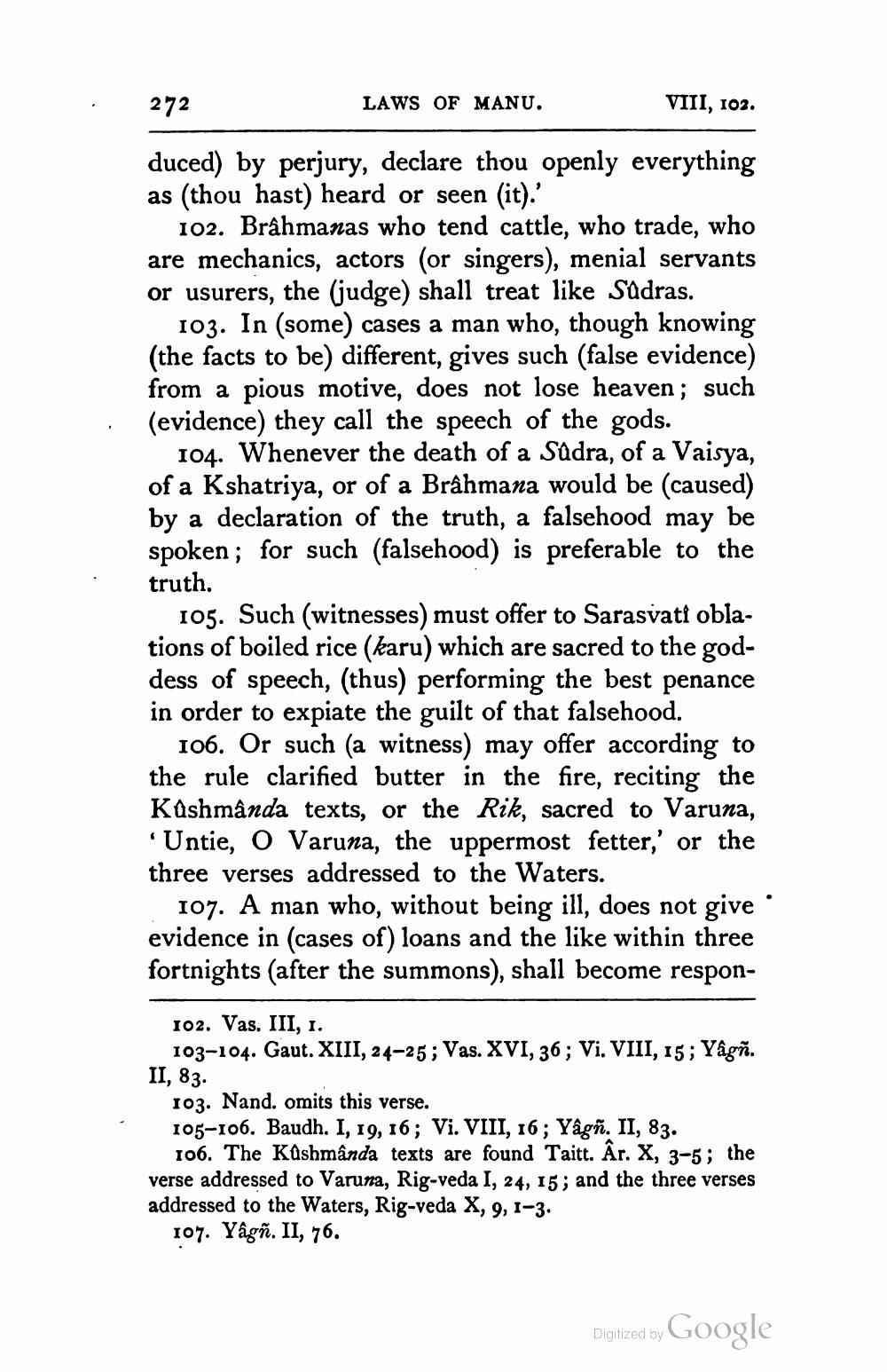________________
272
LAWS OF MANU.
VIII, 102.
duced) by perjury, declare thou openly everything as (thou hast) heard or seen (it).'
102. Brâhmanas who tend cattle, who trade, who are mechanics, actors (or singers), menial servants or usurers, the (judge) shall treat like Sudras.
103. In (some) cases a man who, though knowing (the facts to be) different, gives such (false evidence) from a pious motive, does not lose heaven; such (evidence) they call the speech of the gods.
104. Whenever the death of a Sudra, of a Vaisya, of a Kshatriya, or of a Brâhmana would be caused) by a declaration of the truth, a falsehood may be spoken; for such (falsehood) is preferable to the truth.
105. Such (witnesses) must offer to Sarasvati oblations of boiled rice (karu) which are sacred to the goddess of speech, (thus) performing the best penance in order to expiate the guilt of that falsehood.
106. Or such (a witness) may offer according to the rule clarified butter in the fire, reciting the Kashmânda texts, or the Rik, sacred to Varuna,
Untie, O Varuna, the uppermost fetter,' or the three verses addressed to the Waters.
107. A man who, without being ill, does not give evidence in cases of) loans and the like within three fortnights (after the summons), shall become respon
102. Vas. III, 1. 103-104. Gaut. XIII, 24–25; Vas. XVI, 36; Vi. VIII, 15; Yâgñ.
II, 83.
103. Nand. omits this verse. 105-106. Baudh. I, 19, 16; Vi. VIII, 16; Yagñ. II, 83.
106. The Kashmânda texts are found Taitt. Ar. X, 3-5; the verse addressed to Varuna, Rig-veda I, 24, 15; and the three verses addressed to the Waters, Rig-veda X, 9, 1-3.
107. Yâgñ. II, 76.
Digitized by Google




